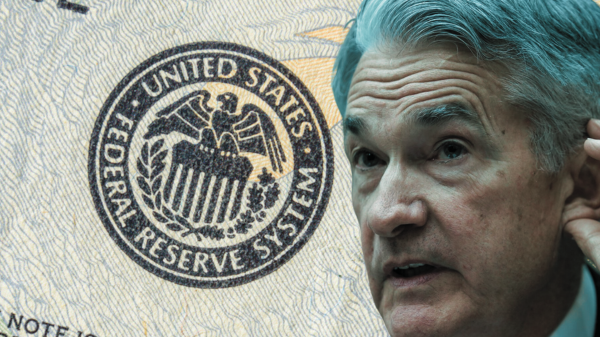For all of its faults, Jerome Powell’s Federal Reserve has the virtue of being very transparent about the way that it conducts monetary policy. This is likely to serve the Fed well in regaining inflation control and keeping inflationary expectations well anchored. However, it does not bode well for President Biden’s hope that the Fed will cut interest rates a number of times before the November election.
Since July 2023, the last time that the Fed raised interest rates to its present level of 5.25 percent, it has been clear about the factors that would guide it in deciding when to start cutting rates. In repeated pronouncements, including those after today’s FOMC meeting, Fed Chair Jerome Powell has indicated that the Fed will not start cutting rates until it sees clear evidence that inflation is coming down towards its two percent inflation target on a sustainable basis. That in turn will require evidence of cooling in the currently hot labor market and a moderation in wage growth.
Powell has noted his disappointment with inflation’s resilience and with the fact that it seems stuck at around 2.75 percent or above the Fed’s target. He has also noted the strength of the labor market, as underlined by an unemployment level that remains close to its postwar low, and by reasonably rapid wage growth. On the basis of those observations, Powell has expressed the view that interest rates will likely have to stay high for longer if the Fed is to achieve its inflation objective.
All of this will make it difficult for President Biden to turn around the public’s present disapproval of his handling of the economy. Last year’s welcome progress in reducing inflation from its July 2022 high of over nine percent has stalled. Meanwhile, the earlier market hopes that the Fed would by now be engaged in a cutting cycle that might have supported financial markets have been dashed.
Two major factors could add to President Biden’s economic woes in the run up to the election. The first is the risk that the Fed’s high interest rate policy might cause financial stress. Not only have the Fed’s high interest rates caused large mark-to-market losses on the banks’ Treasury bond and loan portfolios, along with record high vacancy rates, they are also contributing to the slow-motion train wreck that is now occurring in the commercial real estate market. This could lead to a string of regional bank failures on the eve of the election—especially considering these banks’ high exposure to commercial property lending. Underlining this point was last week’s failure of Republic First Bank that revived memories of last year’s Silicon Valley Bank crisis.
The second adverse economic risk would be a spread of the Israel-Gaza war to the rest of the Middle East region. As a result of the Houthi’s activity in the Red Sea, we already have serious supply disruptions and rising shipping costs with considerably less traffic through the Suez Canal. In its fight against inflation, the last thing that the Fed needs is any disruption to the 20 percent of the world’s oil supply that flows through the Straits of Hormuz. A spike in international oil prices would result soon in higher gasoline prices at the pump. That would force the Fed to stick to its policy of high interest rates for longer in order to keep inflationary expectations well anchored.
Unfortunately for Biden, the Fed’s transparency makes it immune to political pressure to reduce interest rates. Any effort to pressure the Fed to cut rates would likely invite the bond vigilantes to send long-term interest rates significantly higher for fears of a loss of inflation control. For which reason, in his reelection bid, Biden might be well advised to change the political conversation away from the economy.
Originally published by the American Enterprise Institute. Republished with permission.
For more from Budget & Tax News.
For more public policy from The Heartland Institute.











